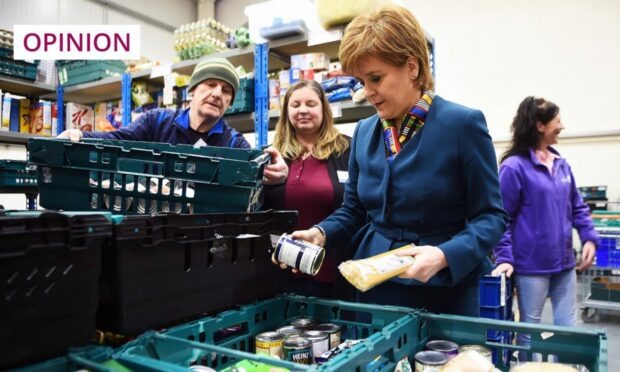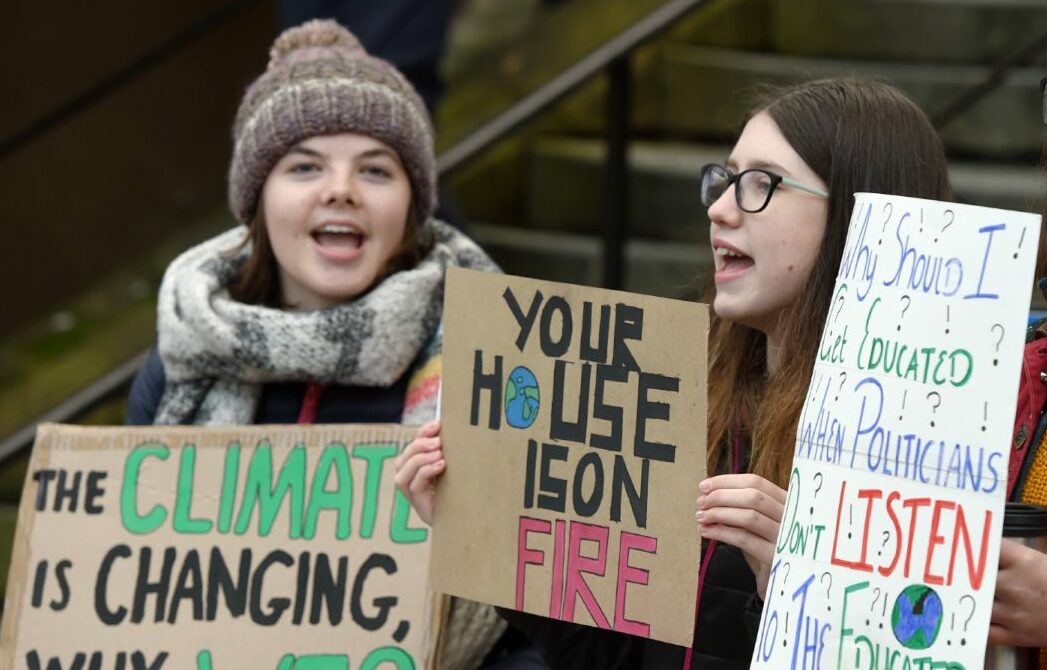The success and credibility of our next first minister will be measured by the progress they achieve towards eradicating poverty, writes Oxfam’s Jamie Livingstone.
The clock is ticking in the race to be Scotland’s next first minister. Whoever triumphs will find a file on their desk marked “urgent”: the pressing poverty problem.
The success and credibility of our next first minister will be measured by the progress they achieve towards a Scotland free from the injustice of poverty, and the strength of their commitment to the same outcome globally.
The challenge is big: at a time of deep and growing wealth inequalities in Scotland, the majority of us face unaffordable bills created by the cost-of-living crisis. It’s the extra sting in the Covid pandemic’s tail.
Around the world, extreme poverty is increasing for the first time in 25 years, and the climate breakdown created by rich countries, like Scotland, is crippling national economies, while droughts, cyclones and floods force people from their homes.

We have never needed a brave, visionary and hopeful first minister more than we do now – and some key tests will determine whether they’re up to that challenge.
Firstly, there is a need for action to better value and invest in care, and all those who provide it. Right now, too many women – because almost all carers are – live in poverty because they look after someone. Without the people who care for our children, our sick, elderly or disabled, our economy and country would grind to a halt, yet carers’ contributions to our society remain largely invisible.
That’s why Oxfam Scotland, along with over 50 other organisations, are supporting “A Scotland That Cares” – the campaign for a dedicated National Outcome on care.
Scotland’s 11 National Outcomes are the jigsaw pieces that together build a picture of the country the Scottish Government is trying to create. They include important goals, like tackling poverty and protecting the environment. But there’s a glaring gap: there is no dedicated National Outcome focusing on care.
The government is about to review its National Outcomes for the first time in five years: a golden opportunity for Scotland’s new first minister to ensure that carers, and those who are cared for, are central to their vision for success – and their plans for government.
Key tests of government both close to home and globally
The next key test is renewing Scotland’s crumbling climate credibility. Around the world, people’s homes and lives are being destroyed, yet the Scottish Government’s own advisers say Scotland’s climate targets are “in danger of becoming meaningless”.
The Scottish Government has long talked a good talk on cutting emissions, while providing laudable financial support for people on the frontline of the climate crisis. But, it must walk the walk, by meeting rather than missing its own targets. The next first minister must also unequivocally oppose any proposed new planet-wrecking oil and gas developments.
And they have to show global solidarity in other ways, too. Successive Scottish Governments have matched the public’s willingness to support people facing the world’s worst humanitarian disasters – like those suffering hunger across East Africa – while investing in long-term development projects. At a time of unprecedented global crisis, the subsequent test is whether the next first minister delivers on the SNP’s promise to increase Scotland’s support.
Underpinning this must be action to realise the “wellbeing economy” the Scottish Government often talks about; moving away from reliance on failed economic measures and rhetoric, and instead focusing on meeting people’s needs while simultaneously protecting the environment. Both the review of Scotland’s National Outcomes and the upcoming Wellbeing and Sustainable Development Bill provide litmus tests for the new first minister’s commitment to ensuring that everyone can thrive and prosper, with no one being left behind – whether in Scotland, or internationally.
Delivering on these key tests requires cash as well as political will. So, the final key test is whether the next first minister does more than just tinker on tax. They must instead use all their powers to introduce bold, progressive taxation that targets undertaxed wealth and makes polluters pay, with the revenues invested in public services, protecting people (particularly carers and children) from poverty, and faster climate action.
Poverty isn’t inevitable, in Scotland or anywhere else. Our next first minister must commit themselves to ending this injustice for good.
Jamie Livingstone is head of Oxfam Scotland


Conversation